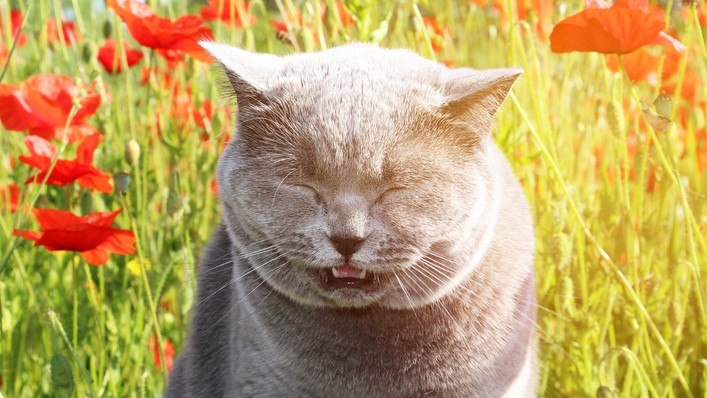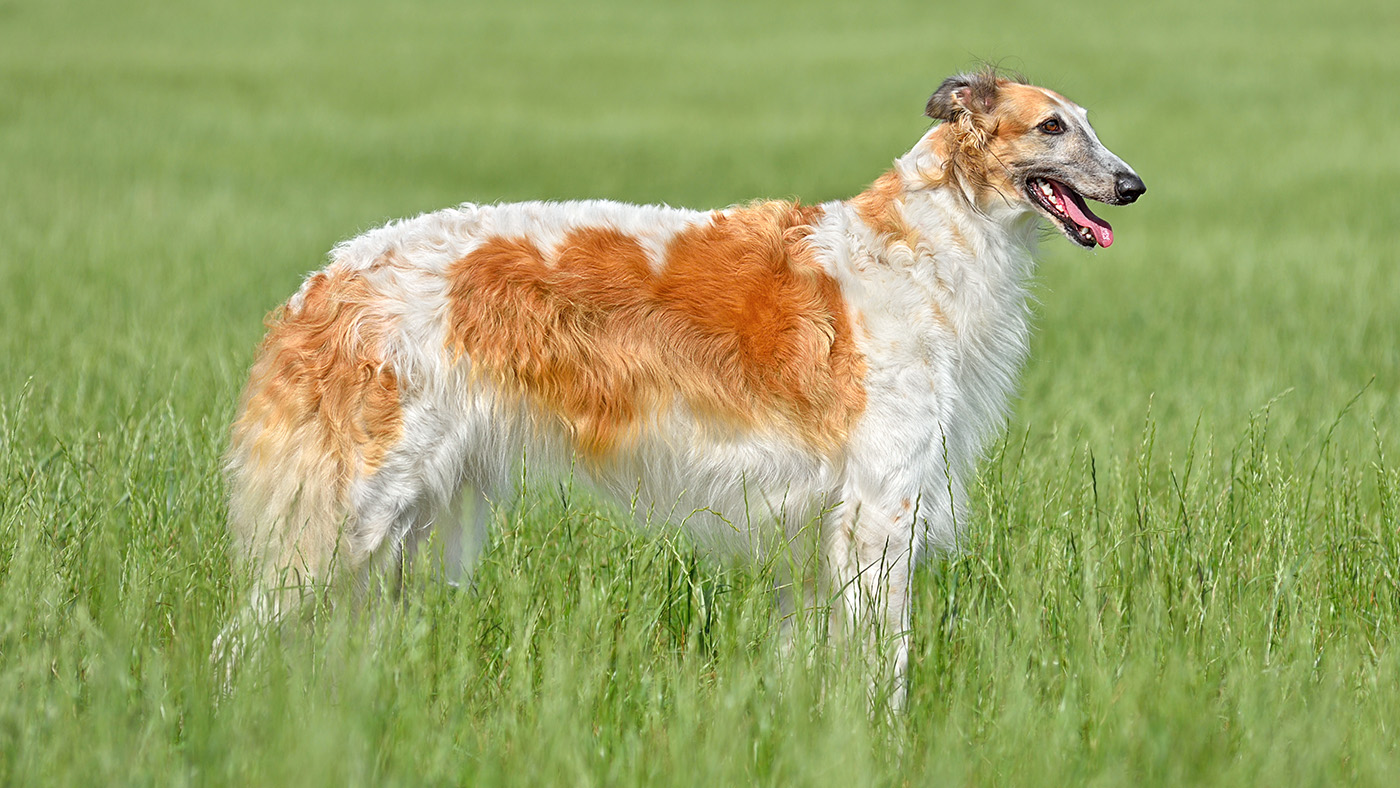Why is my cat sneezing?
Is your cat sneezing? We asked a vet why your feline friend might have the sniffles – here’s what she says!

All cats will have episodes of sneezing occasionally, and some cats tend to sneeze more than others. However, if your cat suddenly starts sneezing more often it could be a sign that something else is going on. You might notice that, as well as the sneezing, your feline friend has other symptoms like a snotty nose, weeping eyes, or retching and gagging. Different causes of sneezing will lead to different patterns of symptoms, so what are the potential causes and how do you know which are serious?
Allergies and inflammation
‘Rhinitis’ is the term used for inflammation of the nasal passages. This can be due to cat allergies like pollen, or irritation from chemicals like cleaning products and air fresheners. If your cat has rhinitis they may have a watery discharge from their nose or eyes, or sneezing might be their only symptom. It's unusual for cats with rhinitis to go off their food or act unwell unless there is an infection present, which could often be identified by a thick, green discharge from the nose. Occasionally, their breathing can be affected, so if you notice any signs of breathing noise or breathing distress, you should speak to your vet immediately.
If your cat is sneezing but has no discharge or a mild watery discharge from their nose, as long as they are well in themselves you may be able to monitor them for forty-eight hours to see if it improves. You should try to identify anything they may have come into contact with that could be an irritant to their airways and prevent any further exposure. However, if your cat is acting unwell, has a snotty nose, or isn’t improving after forty-eight hours, you should organise a check-up with their vet.
Respiratory infection
Sometimes rhinitis isn't just inflammation; there might also be an infection. So, if you're wondering 'can cats get a cold?' the answer is yes, they can. Cats get respiratory infections (or ‘cat colds’) that are usually described as ‘cat flu’. Cat flu is caused by a variety of bacteria and viruses, including herpesvirus, calicivirus, and mycoplasma. If your cat has cat flu, they might have sore and runny eyes, as well as sneezing and a snotty nose. Most cats get cat flu as kittens before they are old enough for vaccinations. Unfortunately, many continue to get symptoms throughout their lifetime.
Cat flu tends to make kitties feel pretty poorly, and they often go off their food if they lose their sense of smell or have a fever. However, it's rare for cat flu to be fatal in adult cats, although very young kittens can be more severely affected. The symptoms of cat flu can be treated to make your purr-fect pal more comfortable. Still, sadly the viruses tend to remain within their system, and since there is no cure, they are likely to get regular flare-ups.
Foreign objects
Another common cause of a cat sneezing is the presence of a foreign object in the nasal passages, like a grass blade or grass seed. Cats with a grass blade stuck up their nose will often have regular sneezing and snorting fits, and can gag, retch, and shake their head violently. If your cat has a foreign object lodged in their nose you might notice green or yellow discharge, and perhaps some spots of blood when they sneeze. This discharge and blood is due to the inflammation and infection that the grass blade causes. The longer the foreign material is stuck in the nose, the more severe the signs get, and occasionally your cat might seem poorly and off their food.
If your cat starts having violent sneezing and snorting fits, pawing at their face, or coughing and gagging, they might have something stuck in their nose. This is especially true if you regularly see your cat eating grass. If you suspect that there is a possibility that your cat has something lodged up their nose, you should seek the advice of your vet promptly.
Other causes
A cat sneezing can also be due to growths within their nasal cavity. They can get both benign lumps and cancerous lumps, but regardless of the type of lump they will often need removal because they irritate the nose just by being there. Cats with a growth up their nose will often show similar signs to those with rhinitis or a foreign object, but they are unlikely to gag or retch.
You might not think it, but bad teeth can also get a cat sneezing. Cats have very long roots on their upper canine teeth and if these roots become diseased and rotten, the bone surrounding the root socket can become damaged and wear away. There is only a thin layer of bone between the tip of the canine roots and the nasal cavity, so it doesn’t take much bone destruction for the tooth infection to break through into the nasal passages. If your cat is sneezing due to bad teeth, as well as nasal discharge you’ll probably notice other signs like a reduced appetite, struggling to eat, dribbling, or bleeding from the mouth.
How much sneezing is too much for a cat?
All cats will sneeze occasionally, and it can be pretty normal. So, when should you worry about a cat sneezing? If you notice your cat sneezing suddenly, where you would rarely hear them before, this could signify that they have picked up an infection, have bad teeth, or have something stuck up their nose. If your cat sneezes regularly, but the frequency of their sneezing has increased, you should consider taking them for a check-up at the veterinarian. This is especially important if their sneezing doesn't return to normal after a couple of days. If your cat has any other symptoms, like going off their food, feeling lethargic, or having sore eyes, you should seek veterinary advice regardless of how often they are sneezing. They may need antibiotics, anti-inflammatories, or other veterinary treatment.
So, what should I do if my cat is sneezing?
If your cat is sneezing excessively but has no other signs and is well, you can monitor them for a couple of days to see if they improve. You can also check for any exposure to cleaning chemicals, air fresheners, or other substances that could irritate the airways. However, if your cat doesn’t improve, is off their food, Is acting unwell, or has a thick nasal discharge, you should contact your vet to arrange an examination.
You might also want to read: Why is my cat walking in circles?
PetsRadar Newsletter
Get the best advice, tips and top tech for your beloved Pets
Dr Hannah Godfrey is a small animal vet who graduated from the Royal Veterinary College in 2011 and began work straight away at a busy mixed practice. Initially, she treated all species, but focussed on small animals from 2014. She has a passion for soft tissue surgery, ultrasound, and canine and feline dentistry, having completed additional training in these areas.

